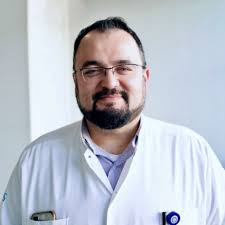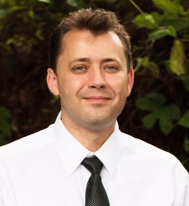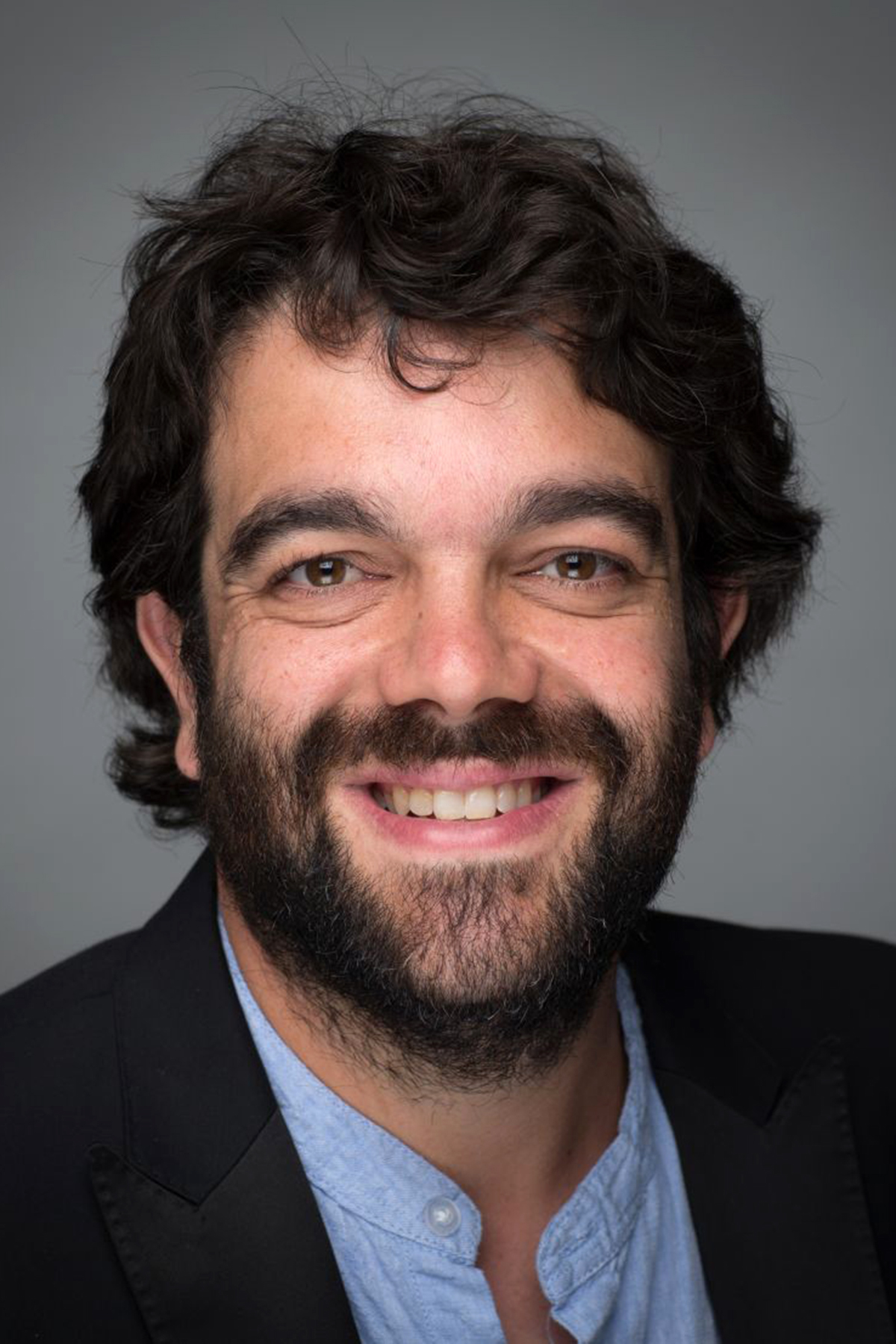We are pleased to announce the esteemed speakers/presenters for the 2019 OHDSI Symposium, listed in alphabetical order. Please check back for updates in September!
 Maura Beaton, MS
Maura Beaton, MS
OHDSI Project Manager
Columbia University
Maura Beaton is the project manager for the Observational Health Data Sciences and Informatics (OHDSI, pronounced Odyssey) collaborative. As project manager, Maura works out of the OHDSI Coordinating Center at Columbia University to support the efforts of over 130 clinical researchers from 12 countries. In addition, she leads the OHDSI Symposium Organizing Committee which is responsible for coordinating the annual OHDSI symposium, an event which last year attracted 300 attendees from academia, government and industry.
Prior to coming to Columbia, Maura worked as a Public Health Advisor for the National Health Service in Edinburgh, Scotland and interned at the World Health Organization Regional Office for Europe in Bonn, Germany.

Clair Blacketer, MPH, PMP
Manager, Epidemiology Analytics
Janssen Research & Development
Clair Blacketer is a Manager in the Epidemiology Analytics group within Epidemiology at Janssen Research & Development, a Johnson & Johnson company. She began her career at a regional health system in her home state of Virginia focused on health outcomes research, specifically in patients with sepsis. She then moved on to studying Medicare health care economics at a large payer and while there she was instrumental in implementing a novel way to track dual-enrolled Medicare retirees. Clair joined Janssen in 2015 where her main area of focus has been observational data management. This includes managing multiple ETL conversions to the OMOP Common Data Model as well as serving as project manager for the Common Data Model working group. She received her Bachelor of Science in Biology from James Madison University and her Master in Public Health from Eastern Virginia Medical School. Clair is also a certified Project Management Professional.

Ismail Gôgenur, MD, DMSc
Professor, Director
Center for Surgical Science (CSS)
Professor Ismail Gôgenur is dedicated to investigating and implementing new methods for improving perioperative and surgical care. His research activities have primarily focus on surgical pathophysiology. A major focus is on understanding the individual risk profiles of patients undergoing colorectal cancer surgery and the effect of these on short and long term oncological outcomes. He has a special interest in translational medicine through research collaboration with basic scientists and data scientists. During the past two years the Center for Surgical Science focused its data centric research around OMOP CDM and the OHDSI community tools.
Professor Gôgenur has been the principal investigator of 6 multicenter randomized clinical trials (INEXA, Fit for Surgery, NEOLAR, PIXIE, nECT, MEDACIS), principal investigator of 4 randomized clinical trials (MECORA, MELMIS, MELODY, IPOS) and country principal investigator of 3 international multicenter clinical trials (Lifeseal, RESET, MIRCAST). He founded the Center for Surgical Science, Region of Zealand in 2014, a research unit focusing on physiological changes caused by a surgical procedure. The unit is composed of 26 people including 6 senior researchers participating to 11 running studies. Since 2018 he is member of the steering group for Personalized Medicine of the eastern Denmark and member of the subcommittee of Datacenter east and of the BRIDGE Executive Scientific Committee, a collaboration between Novo Nordisk Foundation and University of Copenhagen.
Ismail Gögenur is part of 6 book chapters and 291 scientific publications in peer reviewed journals.

George Hripcsak, MD, MS
Vivian Beaumont Allen Professor and Chair of Biomedical Informatics
Columbia University Medical Center
George Hripcsak, MD, MS, is Vivian Beaumont Allen Professor and Chair of Columbia University’s Department of Biomedical Informatics and Director of Medical Informatics Services for NewYork-Presbyterian Hospital/Columbia Campus. He is a board-certified internist with degrees in chemistry, medicine, and biostatistics. Dr. Hripcsak’s current research focus is on the clinical information stored in electronic health records and on the development of next-generation health record systems. Using nonlinear time series analysis, machine learning, knowledge engineering, and natural language processing, he is developing the methods necessary to support clinical research and patient safety initiatives. For his work in precision medicine, he serves as a PI on Columbia’s eMERGE grant, as a PI on Columbia’s regional recruitment center for the All of Us precision medicine program, and as site PI for Columbia’s role on the All of Us Data and Research Center. He co-chaired the Meaningful Use Workgroup of U.S. Department of Health and Human Services’s Office of the National Coordinator of Health Information Technology; it defines the criteria by which health care providers collect incentives for using electronic health records. He led the effort to create the Arden Syntax, a language for representing health knowledge that has become a national standard. Dr. Hripcsak is a fellow of the National Academy of Medicine, the American College of Medical Informatics, and the New York Academy of Medicine, and he chaired the U.S. National Library of Medicine’s Biomedical Library and Informatics Review Committee. He has published over 350 papers.
Dr. Hripcsak serves as PI–with co-PI David Madigan–of OHDSI’s Coordinating Center, which is based at Columbia University. His recent pharmacovigilance research has included medication-wide association studies, treatment pathways, large-scale observational studies, and next-generation phenotyping to better exploit electronic health record data for observational research.
 Gregory Klebanov, MS
Gregory Klebanov, MS
Chief Technology Officer
Odysseus Data Services, Inc.
Gregory Klebanov is the Chief Technology Officer (CTO) at Odysseus Data Services (“Odysseus”), a niche start-up that provide unique, innovative offerings in Real-World Evidence (RWE) and Observational Research software and platform solutions and providing professional data management and IT services in RWE domain, including deep expertise in OMOP CDM, OMOP Standardized Vocabularies and OHDSI Platforms (ARACHNE, ATLAS). He is an active OHDSI participant, contributor and a thought leader.
Prior to joining Odysseus, Greg had spent over 18 years of in Life Sciences sector where he was leading global IT teams building complex data-driven solutions in R&D, Clinical, Regulatory, Medical, Commercial and Enterprise organizations, including in AstraZeneca and Bristol-Myers Squibb.
 David Madigan, PhD
David Madigan, PhD
Executive Vice President and Dean of the Faculty of Arts & Sciences and Professor of Statistics
Columbia University
David Madigan is Executive Vice President and Dean of the Faculty of Arts & Sciences at Columbia University in New York City. He received a bachelor’s degree in Mathematical Sciences and a Ph.D. in Statistics, both from Trinity College Dublin. He has previously worked for AT&T Inc., Soliloquy Inc., the University of Washington, Rutgers University, and SkillSoft, Inc. He has over 120 publications in such areas as Bayesian statistics, text mining, Monte Carlo methods, pharmacovigilance and probabilistic graphical models. He is an elected Fellow of the American Statistical Association, the Institute of Mathematical Statistics, and the American Association for the Advancement of Science. He recently completed a term as Editor-in-Chief of Statistical Science and is the current editor of Statistical Analysis and Data Mining.
 Dani Prieto-Alhambra, MD, MSc(Oxf), PhD
Dani Prieto-Alhambra, MD, MSc(Oxf), PhD
Professor of Pharmaco- and Device Epidemiology
University of Oxford
Dani Prieto-Alhambra is the theme lead for observational research and chair for the big health data research group at the Centre for Statistics in Medicine, University of Oxford.
Prieto-Alhambra leads database and pharmaco-epidemiological research within the Epidemiology research group in NDORMS and has experience designing, analysing and interpreting electronic medical records from around the world. He has worked on databases like the United Kingdom’s CPRD (formerly GPRD), Spain’s SIDIAP Database, Denmark’s Danish Health Registries, Italy’s HSD, and the Netherlands’ IPCI (Netherlands).
He studied Medical Sciences at the Autonomous University of Barcelona in Spain (1996-2002), qualified as a General Practitioner in 2006, and obtained an MSc in Primary Care Research from the Autonomous University of Barcelona in 2009. Prieto-Alhambra joined NDORMS in June 2009 to work on the epidemiology of musculoskeletal conditions, and he was awarded an “excellent cum laude, with a European mention” PhD in 2011 for his work on the potential role of bisphosphonates in knee osteoarthritis and fractures.
Prieto-Alhambra also obtained an MSc in Musculoskeletal Sciences from NDORMS and a Certificate in Pharmaco-epidemiology and Pharmacovigilance from the London School of Hygiene and Tropical Medicine.
 Christian Reich, MD, PhD
Christian Reich, MD, PhD
VP Real World Analytics Solutions
IQVIA
At IQVIA, Christian is responsible for building open OHDSI study networks for RWE generation as a service, including the building of enabling technology solutions. Christian is also Principal Investigator of OHDSI, and also served as Program Manager and Principal Investigator at OMOP. He responsible for the design and construction of the OMOP Standardized Vocabularies and leads the Common Data Model Working Group.
Christian has more than 15 years of experience in life science research and medicine. He was a practicing physician in Berlin and Ulm, Germany before moving to the European Bioinformatics Institute to work on the Human Genome Project. He then joined the biotech industry in 1998, where he worked in various positions on typical challenges in drug research and development, such as gene sequence and expression analysis, clinical trial design and analysis, systems biology, and outcome research, applying computational methods to large scale biological data. He received his bachelor’s degree in preclinical training from Humboldt University in Berlin and holds his M.D. and doctorate from the Medical University of Lübeck, Germany where he focused his research on T-cell activation and regulation.
 Peter Rijnbeek, PhD
Peter Rijnbeek, PhD
Assistant Professor
Erasmus University Medical Center
Peter Rijnbeek, PhD, obtained his MSc (1996) in Electrical Engineering at the Technical University Delft. His PhD thesis, received from the Erasmus University Rotterdam, was on the development of a computer program to automatically interpret pediatric electrocardiograms. He is Assistant Professor at the Erasmus University Medical Center in Rotterdam where he is leading the health data science group at the Department of Medical Informatics (www.healthdatascience.nl).
His research interests include computerized analysis of the electrocardiogram, pattern recognition, machine learning and predictive modeling using clinical data. He had a leading role in several large European projects related to secondary use of health care database. He is co-leading the European Health Data and Evidence Network project funded by the European Commission that aims to standardize a large amount of databases to the OMOP-CDM in the upcoming 5 years and create a high quality European data network. Peter is the coordinator of the European OHDSI chapter that organizes a yearly symposium (www.ohdsi-europe.org) and supports the adoption of the OMOP-CDM.

Patrick Ryan, PhD
Sr. Director and Head, Epidemiology Analytics
Janssen Research and Development
Assistant Professor, Adjunct; Department of Biomedical Informatics
Columbia University Medical Center
Patrick Ryan, PhD is Senior Director of Epidemiology and the Head of Epidemiology Analytics at Janssen Research and Development, where he is leading efforts to develop and apply analysis methods to better understand the real-world effects of medical products. He is currently a collaborator in Observational Health Data Sciences and Informatics (OHDSI), a multi-stakeholder, interdisciplinary collaborative to create open-source solutions that bring out the value of observational health data through large-scale analytics. He served as a principal investigator of the Observational Medical Outcomes Partnership (OMOP), a public-private partnership chaired by the Food and Drug Administration, where he led methodological research to assess the appropriate use of observational health care data to identify and evaluate drug safety issues.
Patrick received his undergraduate degrees in Computer Science and Operations Research at Cornell University, his Master of Engineering in Operations Research and Industrial Engineering at Cornell, and his PhD in Pharmaceutical Outcomes and Policy from University of North Carolina at Chapel Hill. Patrick has worked in various positions within the pharmaceutical industry at Pfizer and GlaxoSmithKline, and also in academia at the University of Arizona Arthritis Center.
 Martijn Schuemie, PhD
Martijn Schuemie, PhD
Director, Epidemiology Analytics
Janssen Research and Development
Dr. Martijn Schuemie received his Master’s degree in Economics with a major in Information Management. He completed his PhD in Computer Science on the topic of human-computer interaction in virtual reality systems for phobia treatment. In the past, he was employed as an assistant professor at the Erasmus University Medical Center of Rotterdam, where he started by researching the application of text-mining the scientific literature in support of molecular biology. He later moved to pharmacoepidemiology, and was one of the lead investigators in the EU-ADR project tasked with building a prototype drug safety signal detection system using population-level observational data. In 2012 he received a one-year fellowship of the FDA and became an active OMOP investigator.
In 2013 Martijn joined Janssen Research and Development, where he continued his research in OMOP and later in OHDSI. He is working on methods for estimating average effect sizes in observational, calibration of effect size estimates, and patient level prediction, as well as supporting the conversion of databases to the OMOP CDM. Within OHDSI, Martijn has developed the White Rabbit and Rabbit in a Hat tools, and is contributing to the OHDSI Methods Library. Martijn is heading the OHDSI Population-Level Methods workgroup together with Marc Suchard.

Tufts Medical Center CTSI and Institute for Clinical Research and Health Policy Studies
Dr. Williams is a psychologist by training, a health services researcher, clinical informatician and data scientist. The areas his work has focused on include the conduct of pragmatic trials, on relating EHR-based performance measures to disease incidence, on interventions that promote individual health behavior change and on the measure of health literacy and health communication. He was a member of AcademyHealth’s Electronic Data Methods forum and the Data Quality Collaboratory. He oversees the Data Quality program of the Tufts CTSI.
